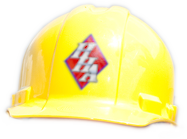Keeping you and your love ones safe is a main priority in your life. But it is also a main priority within our team. We try to make sure each and every one of our customers and potential customers are safe and know things about safety when it comes to their home. Here are some essential things you should know about HVAC, gas, and plumbing:
- Clean your air filter – Clogged air filters in your furnace could result in carbon monoxide fumes leaking into your home. Check filters frequently, cleaning or replacing them at least every three months.
- Install and maintain carbon monoxide and smoke detectors – Colorless, odorless carbon monoxide gas is potentially fatal when inhaled, and electrical fires can result from any home appliance including heating and air systems. Install carbon monoxide and smoke detectors throughout your home. Be certain to check batteries monthly, change them at least once a year, and test new batteries for performance.
- Designate family friendly areas – Block children and pets from accessing rooms that contain furnaces and boilers to prevent potentially dangerous burns from pilot lights and pressure release valves.
- Schedule annual professional maintenance – Having your heating and cooling system professionally maintained is important in preventing safety issues. Professional technicians can check your system for safety issues that could result from a faulty system and ensure your heating or air will be there for you when you need it most. Call us or use the app to schedule your heating and cooling system maintenance!
Some dangers associated with heating and cooling systems—and that you should be aware of—include:
- Loose connections from the expansion and contraction of heat pump units that could potentially lead to electrical fires
- Faulty pilot lights and heat exchanger leaks on your furnace, resulting in carbon monoxide poisoning
- Blocked, poorly located, or faulty boiler pressure release valves
Here’s how to stay safe when the weather changes:
- Prepare – Power failures, storms, and other disasters could occur at any time, so take precautions to familiarize yourself with the way components in your home, such as your heating and air system, function to increase your safety and comfort.
- Practice electrical safety – Educate yourself and older family members on how to operate circuit breaker controls for your heating and air conditioning equipment and other appliances in your home. Turn off circuit breakers to your heating and air during a power outage to prevent harmful spikes in electricity that could occur when power comes back on.
- Install surge protectors – Installing a surge protector on your heating and air conditioning system protects expensive heating and air equipment when you are away. A surge protector will automatically shut down power to your system if an electrical spike occurs.
- Have your system professionally inspected following a major disaster – Floods, tornados, and more can affect your heating and cooling system, resulting in unsafe operation. Following the event of a natural disaster, have your system professionally inspected before turning the power back on.
If you have any questions please email me at kevin@harbinair.com. I hope everyone is having a great Winter season.
Serving North MS, West Tennessee, and North Alabama sense 1989.



